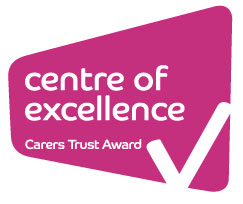3.4. Financial Assistance: Money and Benefits (Preview)
Carers pay a high price for taking on a caring role, sacrificing many aspects of their own life and savings to support their cared for. As a carer, you or your cared for may be entitled to claim one or more benefits. There are a range of benefits available to you, but if you are unsure as what type of financial assistance you could get or you need help with filling out forms, please get in touch with your local carer centre for information.
CARER’S ALLOWANCE
Carer’s Allowance is £62.10 a week (2015/16 rate) to help you look after someone with substantial caring needs. You don’t have to be related to, or live with the person you care for but you must be 16 or over and spend at least 35 hours a week caring for them and you won’t be paid extra if you care for more than one person. Carer’s Allowance is not being replaced by Universal Credit, but it is taxable and can affect the other benefits that you and the person you care for get.
Who can claim?
To qualify, the disabled person you care for must already get one of these benefits:
– Personal Independence Payment – daily living component
– Disability Living Allowance – the middle or highest care rate
– Attendance Allowance
– Constant Attendance Allowance at or above the normal maximum rate with an Industrial Injuries Disablement Benefit
– Constant Attendance Allowance at the basic (full day) rate with a War Disablement Pension
– Armed Forces Independence Payment
You might be able to get Carer’s Allowance if ALL of the following apply:
– you are 16 or over
– you spend at least 35 hours a week caring for someone
– have been in England, Scotland or Wales for at least 2 of the last 3 years
– you normally live in England, Scotland or Wales, or you live abroad as a member of the armed forces
– you are not in full-time education
– you are not studying for 21 hours a week or more
– you earn no more than £110 a week (after taxes, care costs while you are at work and 50% of what you pay into your pension) – don’t count your pension as income
– you are not subject to immigration control
You might still be eligible if you are moving to or are already living in another EEA country.
Effect on other benefits
When you claim Carer’s Allowance, the person you care for will stop getting:
– a severe disability premium paid with their benefits
– an extra amount for severe disability paid with Pension Credit, if they get one
– Reduced Council Tax – contact their local council to find out if this affects them
Effect on your benefits
When you claim Carer’s Allowance your other benefits may be reduced, but your total benefit payments will usually either go up or stay the same.
Before claiming Carer’s Allowance you should get advice from your local carer centre.
How to make a claim
You can apply for Carer’s Allowance by post or online.
You will need
– both you and your partner’s National Insurance number (if they have one)
– your bank or building society details
You also need details of the person you care for. You need their:
– date of birth and address
– National Insurance number or Disability Living Allowance reference
If you’re studying or working you will also need your:
– employment details including dates and how much you were paid
– course details if you are studying
– latest payslip, or P45 if you’ve recently finished work
You can backdate your claim by up to 3 months.
How is Carer’s Allowance paid?
You can choose to be paid either weekly in advance, or every 4 or 13 weeks.
DISABILITY LIVING ALLOWANCE (DLA) and PERSONAL INDEPENDENCE PAYMENT (PIP)
Disability Living Allowance (DLA) is a tax-free benefit for disabled children and adults to help with extra costs that may arise because of the disability. It is not based on the disability itself but the needs arising from it. For example, if you need someone to help look after you or to access support services. DLA is available whether or not you work and it isn’t usually affected by any savings or income you may have.
DLA is ending for people who were born after 8 April 1948 and are 16 or over, but you will continue to get it until the Department for Work and Pensions (DWP) writes to you to and tell you when it will end or invite you to apply for PIP. You must apply within 28 days from the date on the letter.
Please find out more about DLAs and PIP on the following link:
DLA for Adults:
https://www.gov.uk/dla-disability-living-allowance-benefit/overview
DLA for Children:
https://www.gov.uk/disability-living-allowance-children/overview
PIP:
https://www.gov.uk/pip/overview
ATTANDENCE ALLOWANCE
If you are over 65 and have a long-term disability or health condition which means you require help with your care needs, you could be entitled to Attendance Allowance. It is paid at 2 different rates and how much you get depends on the level of care that you need. This could make a huge difference to your life especially if you are dealing with a long term health condition that may have taken away some of your independence. Other benefits you get can increase if you get Attendance Allowance.
What is Attendance Allowance used for?
Attendance Allowance can be used on anything you choose, including paying for any help that you rely on friends and family for. These are some of the things people use their Attendance Allowance for:
– taxis to get to and from the shops
– someone to do the garden, clean the windows, help with housework
– the additional cost of heating if you need to keep warm when you are unwell
– a special diet that helps you to manage your health condition
– aids, adaptations and appliances to make life easier for you
– flowers or treats for friends and relatives who have helped you out
– holidays, weekend breaks or trips to see friends or relatives
Please find out more about Attendance Allowance on the following link:
https://www.gov.uk/attendance-allowance/overview
EMPLOYMENT AND SUPPORT ALLOWANCE
You can get Employment and Support Allowance (ESA) if your ability to work is limited by ill health or a disability. ESA has two elements, contributory ESA and income-related ESA. You may receive either one of these or both together, depending on your circumstances. You must have a Work Capability Assessment while your ESA claim is being assessed. This is to see to what extent your illness or disability affects your ability to work.
Please find out ESA on the following link:
https://www.gov.uk/employment-support-allowance/overview
UNIVERSAL CREDIT
The Government is making some changes to social security support system over the next few years and some of the benefits will be replaced by Universal Credit. People can claim Universal Credit if they are a new claimant in certain areas, but different areas may allow different types of people to claim.
Click on the link below to find out the full list of the jobcentres where couples and families can claim Universal Credit at the moment:
https://www.gov.uk/guidance/jobcentres-where-you-can-claim-universal-credit
People who live in a jobcentre area listed above may be able to claim Universal Credit if they are on a low income or out of work. There’s no limit to the number of hours claimants can work a week if they get Universal Credit, their payment will reduce gradually as they earn more. Claimants won’t lose all their benefits at once if they are on a low income.
Please find out more about Universal Credit on the following link:
https://www.gov.uk/universal-credit/overview







